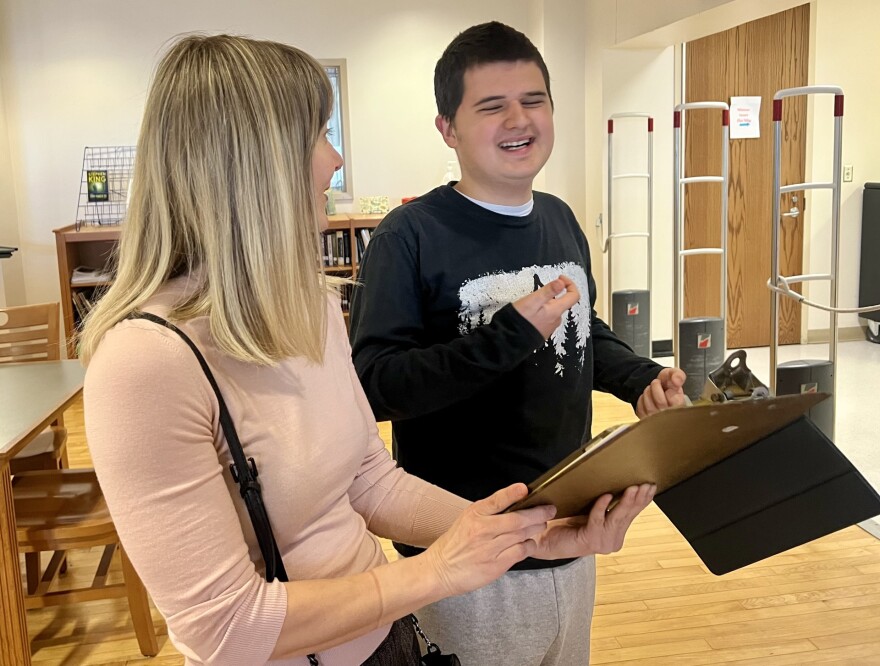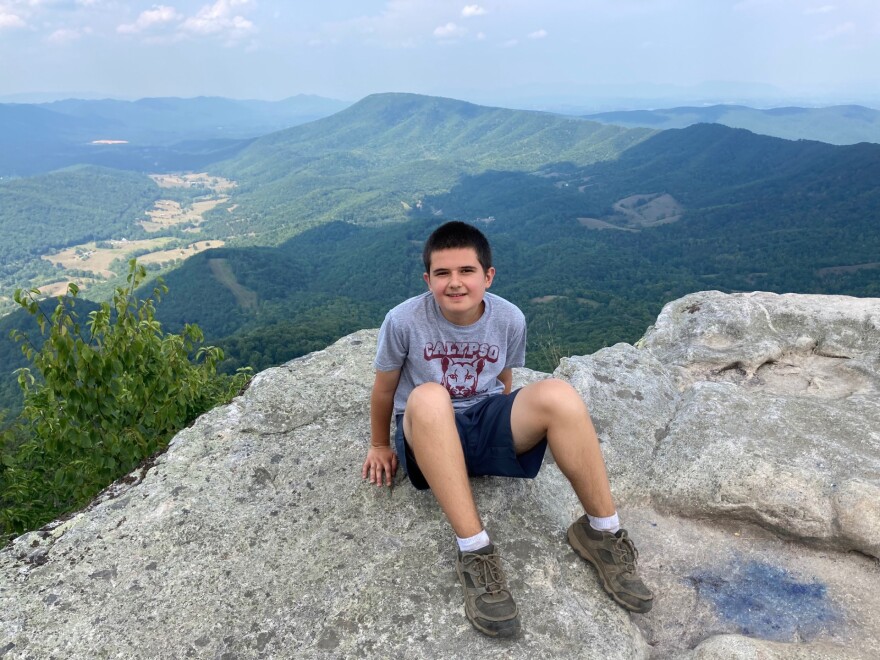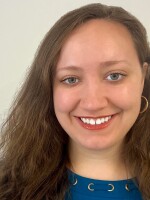BETHLEHEM, Pa. — Bethlehem Area teen Jace Pooley is passionate about sharing his journey as an autistic nonspeaker in the hopes of encouraging others to be more empathetic.
That’s why Pooley, 16, a Liberty High School junior, recently published an article about his experiences in Pediatrics, the journal of the American Academy of Pediatrics.
Today, Pooley will be a special guest at the First Annual Autism Community Walk in Bethlehem, hosted by Magellan Behavioral Health of Pennsylvania, Inc. for Autism Acceptance Month.
At the event, Pooley's mother will publicly read his article, "Listen Up: Autistic Youth Need to Be Heard," before Pooley leads attendees on the walk.
The two-hour celebration begins at 1 p.m. at Saucon Park, 1204 Williams St. Participants will walk 0.6 of a mile around the neighborhood adjacent to the park.
Magellan is putting on the inaugural walk in collaboration with Lehigh County HealthChoices, Northampton County HealthChoices, Autism Society Lehigh Valley and NAMI Lehigh Valley.
A copy of Pooley's article is available for free to read on his blog, Meaning and My Brain, where he regularly posts about autism, communication and his love of hiking.
'Voices that deserve to be heard'
In the article, Pooley called on doctors to better understand autistic, nonspeaking youth by being patient and taking their health concerns seriously.
“We may not communicate like others do, but we have voices that deserve to be heard,” Pooley wrote.
“We may not communicate like others do, but we have voices that deserve to be heard."Jace Pooley, Liberty High School junior
In his case, Pooley can speak sometimes, but not consistently or always in the way he intends, as he explained in his article. He easily understands language, but the talking part is difficult.
Most of the time, he types out his thoughts on an iPad, writes them down on a piece of paper or spells out his words with a letter board that has the alphabet accessible for him to point at.
Pooley is still perfecting his typing, which he began using as a way to communicate in the past couple of years. The skill has required him to work on his motor skills — which can be a challenge for people with autism.
For this report, LehighValleyNews.com interviewed Pooley via email and included some quotes directly from his Pediatrics article, which was published in the journal's January print edition.
Autism experiences vary
Pooley's struggle with speaking is part of the reason he was diagnosed with autism, he said in the article. But the signs and symptoms of autism can look different for each person with a diagnosis.
Autism spectrum disorder, as it is formally known, can include social and communication challenges that vary in intensity, according to the U.S. Centers for Disease Control and Prevention.
People with autism may also have repetitive behaviors and different ways of learning.
Researchers estimate about a third of people with autism can’t communicate with speech.
Some autistic children may also have an intellectual disability, but that's not the case for all.

According to a recent report by the CDC, more than a third of autistic 8-year-olds had an average or high IQ.
That's based on 2022 data from children who had the necessary information available.
The same report, which was released this month, also includes new prevalence data.
The CDC found that among 8-year-olds, 1 in 31 had autism in 2022. That’s up from about 1 in 36 children in 2020.
The rate of autism diagnoses has been on the rise since 2000. Researchers attribute the increase to better diagnostic practices and more awareness.
New perspective
Pooley hated his autism diagnosis until recently, he said.
His outlook changed when he realized having autism doesn’t make him any less intelligent.
“Imagine how hard it is trying to convince the world that you’re smart when you get labeled something that too many people think means dumb,” Pooley said. “It’s the worst!”
Pooley excels at math and is taking dual-enrollment courses online at Northampton Community College to earn an associate’s degree in communication.
After he graduates high school, Pooley said he hopes to continue studying communication online at Drexel University.
Anna Rodionov, a Bethlehem Area instructional aide who has worked with Pooley for two years, said some people have preconceived notions about Pooley before getting to know the teen like she has.
The two communicate using an iPad during the school day.
“But once you establish that and you see how many bright ideas…are in this kid, it’s like an unbelievable experience.”Anna Rodionov, Bethlehem Area instructional aide
“When you work with autistic kids, it’s like a mystery,” she said. “Jace is an enigma. Nobody knows what’s happening there, and the only way to get that information out is to establish communication.
“But once you establish that and you see how many bright ideas…are in this kid, it’s like an unbelievable experience.”
Advice to physicians
In his recent article, Pooley explored his thoughts and feelings about autism in the context of health care.
He wrote that he struggles with autism being viewed as a “disease” or a “problem” by some. Instead, he views autism as “having a brain and body that work differently."
Autistic youth may need medications or therapy, but treatment approaches should be individualized and aimed at keeping youth “happy, calm, and positioned to succeed," Pooley wrote.
He urged physicians to focus on treatments that address the wants and needs of autistic youth as they and their families have expressed them.

That wasn’t always Pooley's experience with doctors, though.
When he was experiencing health issues, it was hard to get doctors to pay attention to his gastrointestinal or mental health concerns, which he communicated to them through his parents.
Instead, some doctors were too focused on Pooley's autism diagnosis rather than on his actual health complaints; others seemingly didn’t take his concerns seriously because he’s a nonspeaker.
“I honestly think the best strategy is just always finding a doctor who actually listens and empathizes,” Pooley said. “So often doctors assume all bodies work the same but they don’t.
“My favorite doctors are concerned about my ideas and will let me write or spell.”
Dr. Andy Beck, Pooley’s uncle and an Ohio-based pediatrician, helped his nephew with the article submission process for Pediatrics.
Beck said Pooley's article may help physicians become better listeners.
“I was really glad that Jace could lend his voice to that push to getting patient and family views to those who are providing the care,” Beck said.
Inspired to advocate
Pooley’s parents said his publication in Pediatrics has pushed their son toward advocacy.
“He’s now a man on a mission,” Pooley's mother, Karen Beck Pooley, a Bethlehem Area school director, said. “As a parent, that’s just kind of amazing.”
“He’s really into the idea of activism. He really has become more and more invested in advocating for nonspeaking, autistic kids in particular, like him, so this was a window into that.”Jeff Pooley, Jace Pooley’s father
“He’s really into the idea of activism,” said Jeff Pooley, the teen's father. “He really has become more and more invested in advocating for nonspeaking, autistic kids in particular, like him, so this was a window into that.”
For the past couple of years, Jace Pooley has also been a part of a Pennsylvania-based advocacy group for nonspeakers with autism or Down syndrome: Spellers Empowering Education for Nonspeakers, or SEEN.
Currently, the group consists of a handful of young people who meet once a month via Zoom to discuss advocating for themselves and educating their communities about nonspeakers.
With the assistance of their parents, they use notepads, keyboards or letter boards to communicate with each other during meetings.
Additionally, Jace Pooley and other group members sometimes meet up for outings, such as bowling or hiking.
“It’s made a world of difference for Jace,” his father said of SEEN. “He has a community now, not just for the activism, but socially, too.”
Jace Pooley said he plans to continue his advocacy work through writing, and he already has ideas about the issues he’ll tackle next.
For instance, he wants to help improve the diagnostic criteria for autism as it relates to language and communication, he said. He also wants to push for more nonspeakers to access hiking trails.
“I want to write about nonspeakers and the amazing things we have to offer," he said. "Plus the support we need to be heard."


